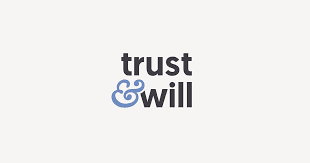Estate Management
Top 10 Reasons Why Everyone Needs an Estate Plan
When you think of estate planning, do you associate it with older and wealthier people? You’re not alone. Thanks to the portrayal of estate planning in the media, many people assume estate planning is an activity that only benefits the wealthy or aging adults. While it certainly does benefit these groups, estate planning can empower any individual, regardless of their age or level of income. This guide will help explain what an estate plan is, what it typically consists of, and the top reasons everyone should have one.

When you think of estate planning, do you associate it with older and wealthier people? You’re not alone. Thanks to the portrayal of estate planning in the media, many people assume estate planning is an activity that only benefits the wealthy or aging adults. While it certainly does benefit these groups, estate planning can empower any individual, regardless of their age or level of income. This guide will help explain what an estate plan is, what it typically consists of, and the top reasons everyone should have one.
What Is an Estate Plan?
An estate plan is a legal tool that allows individuals to make decisions about the future. It typically looks like a set of legal documents, with each document addressing certain types of decisions for various purposes.
The reason for which many people assume estate planning is something only the wealthy do is because a major function of this instrument is leaving instructions for how your assets and property should be distributed after you pass away. While this is an important function, there are actually many other functions associated with estate planning that can be beneficial to anyone. Further, individuals often don’t realize that they can use their estate plan to pass on any possession, from a computer to your collection of seashells that could be valuable to a family member. Amassing wealth certainly isn’t a prerequisite for making estate planning worthwhile.
The next section will introduce 5 common estate planning documents, which will demonstrate the versatility of an estate plan.
Top 5 Estate Planning Documents to Include in Your Estate Plan
There are many types of estate planning tools and documents that an individual can choose from. The estate plan is customized per that individual’s circumstances, as well as the outcomes they wish to obtain. Because of this, there is no such thing as “one size fits all” in estate planning. However, there are at least 5 estate planning documents that everyone should consider including. Having these 5 documents in place creates a solid foundation that can be built upon over time.
Here are the top 5 documents to include in your estate plan:
Last Will and Testament If you aren’t familiar with estate planning, there are still high chances that you’ve heard of a will before. The last will and testament, or “will” for short, is a document used to express what should happen when you pass away. First and foremost, it is used to leave instructions for how your property should be distributed to beneficiaries. In this document, you will also name your executor who will be responsible for managing and closing your estate when you pass away. If you have any dependents, you can also use your will to name a guardian. Last but not least, your will is the perfect place to express your wishes regarding your final arrangements, such as for your funeral and wishes for your remains.
Living Trust A trust is an optional but popular estate planning tool due to its numerous advantages. It is a fiduciary agreement that places your chosen assets and property under ownership of the trust. What this means is that you are no longer the owner of these assets, which removes them from your estate. When you pass away, these assets and property will not have to go through the probate process, which is lengthy and costly. Further, you get to name a trustee who will manage your trust on your behalf and see to it that distributions are made to your beneficiaries per your precise instructions. Trusts give trustors more control over the timing and manner in which assets are distributed to beneficiaries, which is an incredible tool if you don’t want a loved on receiving their entire inheritance at once. There are several types of trusts, but living trusts are especially popular as you maintain control and access to assets transferred to the trust during your lifetime.
Durable Power of Attorney (POA) Any estate planning expert would encourage you to also include a durable power of attorney (POA) document. This is a document used to authorize a trusted individual (an agent) to step in and manage your finances and make decisions on your behalf if you are not able to or are not willing. Let’s say you are on vacation abroad. Something goes wrong with your visa and you are not able to re-enter the U.S. until you sort things out, which can take some time. If you have a POA in place, your agent can step in and do important tasks for you, such as pay your bills, file your taxes, or even run your business. It may be stating the obvious that it is critical that you select an agent that you can wholeheartedly trust.
Living Will A living will, unlike a last will and testament, address your wishes for what should happen regarding your future medical care and end-of-life care. This document only goes into effect if you were to become incapacitated, which means that you are unable to make or communicate your own decisions regarding medical care. Incapacitation can occur due to trauma from accidents, such as a coma, or severe illness, amongst other reasons. Your family members and medical providers will refer to your living will, which will inform them of what type of treatments you would like, as well as any treatments or life-sustaining interventions you refuse.
Health Care Proxy The health care proxy document allows you to appoint an individual who is authorized to make medical decisions on your behalf should you become incapacitated. A living will and health care proxy go hand-in-hand, and together they make up your estate plan advance directive. Your proxy will refer to your living will to help them navigate your medical care and critical decisions.
Why You Need An Estate Plan: Top 10 Reasons
You may have already begun to see examples that demonstrate how an estate plan could benefit anyone, regardless of their age or income level. Here are the top 10 reasons why everyone needs an estate plan:
Tragedy strikes at any age It’s extremely sad to point out that accidents and tragedies can happen to anyone, and at any age. It’s easy to procrastinate on creating our estate plans when we feel young, healthy, and invincible. However, the COVID-19 pandemic demonstrated that things can change unexpectedly. Even if you don’t feel like you’re at the stage of setting up a trust yet, you should at least have a will and advance directive (living will and health care proxy) in place.
Build generational wealth An estate plan empowers you to keep your hard-earned property and assets within your family and build generational wealth. Without proper planning and strategy, your wealth can be distributed in ways you wouldn’t agree with, and if you’re not careful, can get eaten up by taxes and creditors. By creating an estate plan, you get to have a say over what should happen to your property and make sure it ends up in the hands of those you love.
Reduce the risk of conflict A loved family member’s death or illness can lead to heightened emotions, and thus opening the door to conflict within family members. By having an estate plan in place, your voice and decisions ring true, leaving little space for confusion and ambiguity. This is applicable to both the distribution of property and medical decisions.
Protect vulnerable family members Do you have a dependent child or a loved one with special needs? An estate plan is the only surefire way to ensure that they will be protected and cared for in your absence. You can use your estate plan to make financial and logistical arrangements for your dependents, as well as appoint caretakers.
Have a say over your health care Certain health care decisions can be controversial, especially in life-or-death situations. Some of your family members, no matter how much love there is, may disagree with your personal decisions. If you are incapacitated, they may try to override your wishes based on their personal or religious preferences. Make your word final by establishing your living will.
Communicate your wishes regarding your final arrangements Death can be an uncomfortable topic, but it is an important one. By setting up your estate plan, you’ll have an opportunity to communicate your wishes regarding your final arrangements. Do you want a traditional funeral and burial? A celebration of life and a burial at sea? Want to donate your remains to science? These are extremely personal decisions that you may or may not want to keep close to your heart. By writing them down in your will, you can have peace of mind knowing that your wishes will be carried out. Memoria provides an end-to-end service that can help your loved one plan and carry out your wishes, just the way you would have wanted.
Save on taxes Estate planning is just as much about protecting your family as it is about protecting yourself. When you pass away, your estate can be subject to certain taxes, such as estate taxes and inheritance taxes. Some of these taxes must be paid out of the estate, thus decreasing your inheritance. Other taxes are paid when your loved ones inherit or sell assets or property, which also affects their inheritance. With proper planning and strategy, there are techniques in which you can save on taxes for your family, thus leaving most of your hard-earned assets intact.
Avoid probate Probate is an important court process that oversees the distribution of an estate when an individual passes away. The court will also appoint key roles such as executors, administrators, and guardians. They will also adjudicate any claims made against the estate. However, this process is quite lengthy and costly. By planning your estate, you can lessen the effects of probate. Further, you can choose to set up a trust to remove key assets and property out of your estate and thus remove them from the probate process.
Include a business contingency plan If you own a business, then you need a contingency plan. You can create a succession plan, but you can also address how your personal interest in the business should be handled through your estate plan. Further, you can appoint a power of attorney who is authorized to step in and make decisions and take actions on your behalf if you pass away or are unable to manage your business for an extended period of time.
Give clarity to loved ones and peace of mind for all This last item is often overlooked but may be one of the most important reasons to create an estate plan. Serious illness and death is without a doubt a stressful time for your loved ones. Not only are they dealing with grief, they are concerned with what should happen regarding your estate, arrangements, health care, and other important decisions. Not having a plan in place and not having your wishes specified can be burdensome and create undue stress. By making your wishes known and by making the necessary decisions and arrangements, your loved ones will have clarity. Last but not least, it will give peace of mind to everyone, yours included.
This guide explained how estate planning is for everyone. If anything, it’s a legal tool that should be used by everyone, especially by those who don’t think they need it. That’s because it’s a surefire way to protect yourself, your loved ones, and your assets. Important reasons to plan your estate help demonstrate that much of estate planning is about making your personal wishes known, giving your family clarity, and giving yourself peace of mind.
Estate planning used to seem like a convoluted, expensive process, but that is no longer true. Trust & Will, an online estate planning platform, has made it easy and affordable for anyone to create their estate plan, from end-to-end. After you are gone one day, Memoria makes it much easier for your loved ones to make your funeral arrangements. Together, these two services can release your loved ones from worry while they are undergoing the grieving process.


